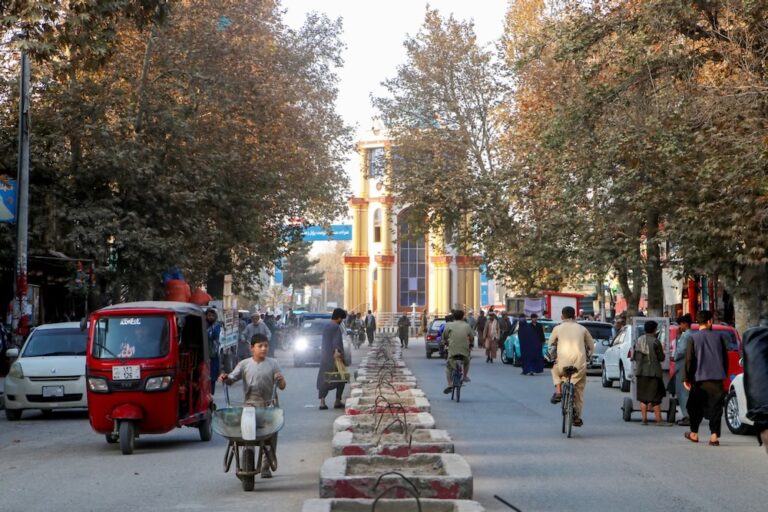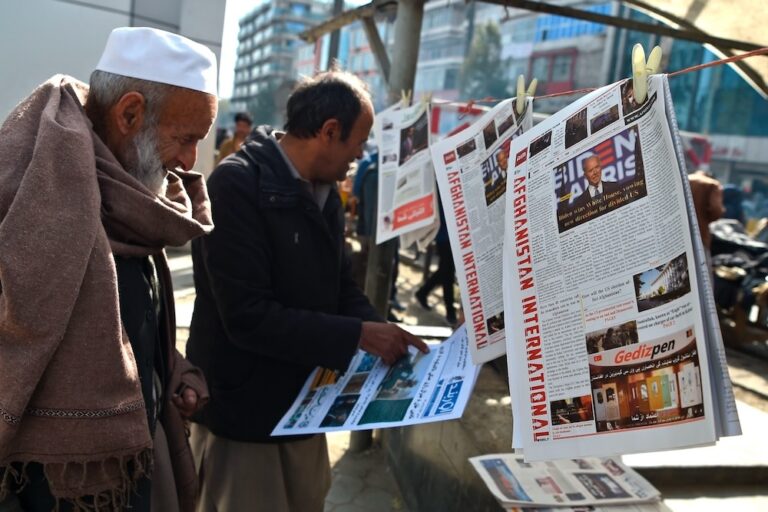The Afghanistan Journalists Center said that the plan violates the essential spirit of journalism, as well as the independence of journalists.
This statement was originally published on afjc.media on 4 April 2023.
The Taliban’s Ministry of Information and Culture to register journalists is aimed at restricting press freedom and foregrounding pressure on journalists and must be canceled, the Afghanistan Journalists Center (AFJC) said on Monday.
On Sunday, April 2, the Taliban’s Ministry of Information and Culture provided information in a statement about a plan to register all journalists across Afghanistan in the ministry’s database and issue them press identity cards.
There is ambiguity around whether the registry is mandatory or voluntary and the plan doesn’t use the word “mandatory” but the ministry spokesman Abdul Matin Qane said that once journalists and media workers register, they will be provided with a better working space and easier access.
AFJC said: “This plan violates the essential spirit of journalism, as well as the independence of journalists, and would obstruct their ability to work and gives the authorities too much control over the journalists and foregrounding pressure on them.” “We perceive this plan as beyond the authority of the Ministry of Information and Culture and call for its cancellation.”
In another move, the ministry commented on an inter-agencies agreement between the Ministries of Information and Culture, interior affairs, Virtue and Vice, Foreign Affairs, and general Intelligence departments that require the Ministry of Information and Culture to be the one and only responsible institution for the media.
According to the statement, the Taliban acting Minister of Information and Culture Mullah Khairullah Khairkhwah has said that no other organs had the right to directly interfere in the country’s press affairs, without getting the Ministry and the Commission on Media Violations on board.
AFJC welcomes the inter-agencies agreement as a positive step and calls for its implementation as per Afghanistan’s Mas Media Law.”
Afghanistan has witnessed an unprecedented increase in incidents of violence and threats to journalists following the fall of Kabul in mid-August 2021. AFJC has recorded 319 cases of violations against media freedom in Afghanistan, including at least 160 cases of short-term detention of journalists by the Taliban since the fall of Kabul in August 2021. Most of these incidents were carried out by agencies or individuals belonging to the Taliban, particularly the police and the General Directorate of Intelligence (GDI).



